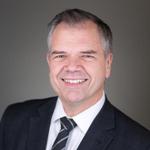Dr. John Izzo, a pioneer on creating successful businesses and emerging work trends for over 25 years, will be the evening keynote speaker at this year’s Entrepreneurial Leaders Conference in Vancouver on Wed, November 29th.
Dr. Izzo began his work life as an ordained Presbyterian minister and then became an organizational consultant and speaker. He was raised and educated in the US and has been based in Vancouver for many years. He has spoken to over one million people, advised over 500 companies, authored six bestselling books and has helped some of the world’s most admired companies such as IBM, Qantas, the Mayo Clinic, Verizon, RBC, TELUS, Westjet, DuPont, Humana, Microsoft and McDonalds.
Dr. Izzo has been a pioneer on employee engagement and social responsibility through his writing and speaking. His book Awakening Corporate Soul: Four Paths to Unleash the Power of People at Work (1994) was a trail blazer on shifting generational values. His objective was to “reclaim the spiritual impulse that is at that heart of work” (2). He argued that corporate soul is, “an experience of touching a deeper level of vitality, inspiration, meaning, and creativity—more than just “doing my job” implies” (7).
When Dr. Izzo wrote Values Shift: The New Work Ethic and What it Means for Business (2000) it showed how individuals shape the future. Dr. Izzo provides a prescient analysis of changing views and expectations in the workplace. He outlines the four forces that have changed how people see work: family, the economy, society and technology. He then describes the six expectations of the new workforce: balance and synergy; work as a noble cause; personal growth and development; partnership; community at work; and trust. As Dr. Izzo notes, “understanding the core values people have about work is the key to winning their commitment” (16).
Interestingly, a number of the points in Values Shift continue to ring true today. Dr. Izzo notes how “work and self-identity fused” and “people seem to be focusing on work as a primary source of personal fulfillment” (23). In addition, “Increasingly, workers want and expect the workplace to meet needs it never had to meet in the past” (23). Dr. Izzo observes that “the status of work has risen steadily to the point where some have called it the “new religion,” the place where people look for growth and development” (113).
Values Shift has an interesting discussion related to the importance and expectations of trust. Dr. Izzo notes that, “Faith in institutions, from government and church to corporations, is lower than it has been at any time since North Americans began measuring such things.” (172). How to build trust? Workers long for the opportunity “to work for an honest firm that will tell them the truth and live by an admirable code of ethics” (172).
Dr. Izzo asks a question that would be on the minds of people with a particular religious tradition: “Why not seek guidance in teachings that have informed countless seekers for thousands of years?” (23). This is a challenge, however. Dr. Izzo points out that, “The everyday language of business has fenced out the soul, the spiritual, and the sacred.” (25).
Dr. Izzo argues that there are four paths to how people can awaken the corporate soul: path of self, path of contribution, path of craft, and path of community. The intent is not to tell people what to believe, but to open the door to discussions about values. Dr. Izzo explains that the corporation “has a responsibility to allow for deeply spiritual questions to be asked and answered at work in ways that promote personal and corporate integrity” (68). Getting started, and leading change, is not easy. Dr. Izzo notes that, “There are no better resources than the wisdom traditions for making this choice” (169).
With Stepping Up: How Taking Responsibility Changes Everything (2014) he focuses on “the value of taking responsibility and how to step up” (xi). A starting point is to look in the mirror. “The moment we focus on what we can change instead of what others must do, everything changes” (9). Speaking up is not complaining. Instead, “Speaking up in a positive way means challenging things but focusing on what we all need to do to make things better” (103). Dr. Izzo provides a poignant challenge: “every time we decide not to speak up a part of us dies” (109).
In his recent book The Five Thieves of Happiness (2017) he notes that psychology and spirituality both seek to answer one question: how do human beings find happiness and meaning? (xiii). Dr. Izzo uses the term “happiness” as a “deep sense of rightness about one’s like and a sense of inner contentment about oneself in the world” (3). He identifies the five thieves of happiness: control, conceit, coveting, consumption and comfort.
He now is blazing a new trail showing business why a rising class of people worldwide will shape the economy of the future with his forthcoming book The Purpose Revolution. This rising class is not one of nationality, income, race or gender but one that aspires to have a good life while doing good.
Through his writing and speaking for more than 25 years, Dr. Izzo has demonstrated that he always has fresh insights and is adept at identifying and combatting the challenges faced by leading organizations.
